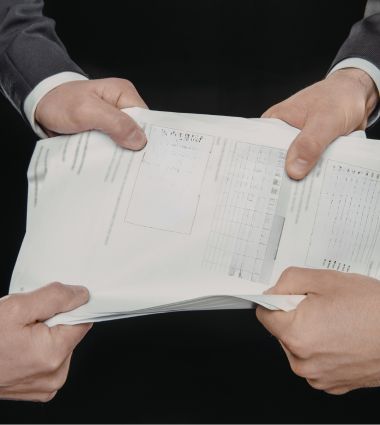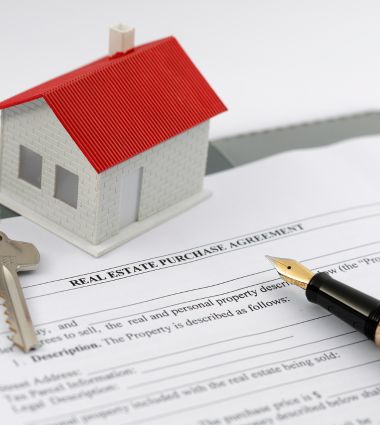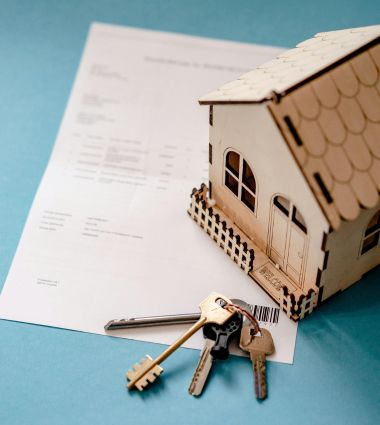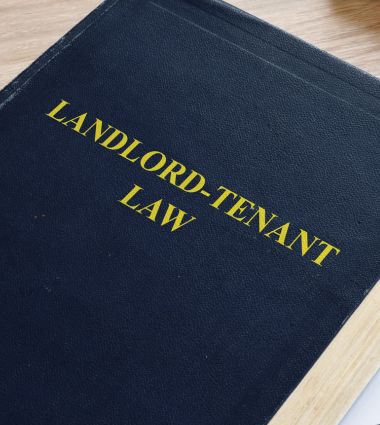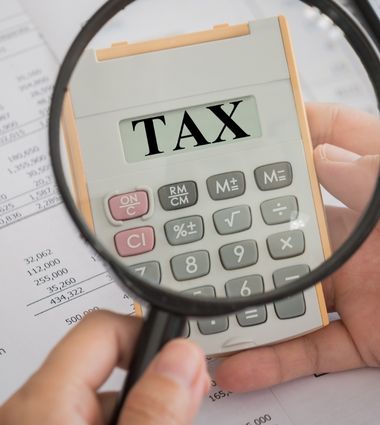How to Challenge an Unfair Property Tax Bill in Toronto
Property taxes in Toronto aren’t exactly small change. Every year, homeowners get a bill based on their property’s assessed value. But what if that value is wrong? What if you’re paying more than you should? It happens more often than people realize. And the worst part? Many homeowners don’t even question it.
If your property assessment seems off, you have the right to challenge it. This guide walks you through how property tax assessments work, how to spot mistakes, and what to do if you’re being overcharged.
How Property Tax Assessments Work in Ontario
Ever wondered how the city decides how much property tax you owe? It all starts with your home’s assessed value, which is determined by the Municipal Property Assessment Corporation (MPAC).
MPAC reassesses properties every four years, looking at a few key factors:
- Your home’s size and condition – A bigger house or one in great shape is usually valued higher.
- The land it sits on – Location matters. A house in downtown Toronto will be assessed differently than one in a quieter suburb.
- Recent sale prices of similar homes – If houses like yours in the neighbourhood are selling for high prices, your assessment might go up.
- Renovations and upgrades – Major updates, like a new kitchen or finished basement, can increase your home’s value.
Your property tax is then calculated based on this assessed value. But here’s the catch — MPAC doesn’t always get it right. If they overestimate your home’s worth or mistakenly include upgrades you never made, you could be paying more tax than you should.
That’s why it’s important to check your assessment and challenge it if something seems off. Many homeowners end up saving thousands just by catching errors in their property assessment.
How to Avoid Property Tax Overcharges Before They Happen
Most homeowners don’t think about property taxes until they get a bill that feels way too high. But by then, fixing mistakes can be a hassle. The good news? You can take steps before you’re overcharged. Here’s how:
Check Your Assessment Every Year
You don’t have to wait for a reassessment. Log in to MPAC’s AboutMyProperty portal to see what they’ve recorded about your home. Check details like square footage, number of rooms, and any listed upgrades. If something’s wrong, like an extra bathroom you don’t have, challenge it right away before it impacts your tax bill.
Keep an Eye on the Market
Property values go up and down, but assessments don’t always keep pace. If homes in your area are selling for less than before, but your assessed value stays high, you could be overpaying. Keeping track of local real estate trends can help you spot a possible overcharge.
Watch Out for Renovation Traps
Thinking of adding a second floor or finishing your basement? Those upgrades can increase your assessment, meaning higher taxes. Before starting a big project, find out how it could affect your property value. Some renovations increase taxes more than others, so it’s worth checking if the benefits outweigh the extra costs.
Compare with Your Neighbours
If houses on your street are similar to yours but have lower assessments, something’s off. Property assessments should be fair and consistent, so if your home is valued much higher than your neighbours’, it’s time to ask MPAC some questions.
Act Fast if You Spot an Error
You don’t have to wait for the next tax bill to fix a mistake. If something seems wrong, request a review from MPAC right away. The longer you wait, the harder it might be to correct an overcharge.
A little effort up front can save you thousands in property taxes. By staying informed and checking your assessment regularly, you can avoid unnecessary costs before they happen.

Signs You Should Challenge Your Property Tax Bill
Nobody likes overpaying taxes, but how do you know if your property tax bill is too high? Sometimes, homeowners assume their bill is just part of rising costs, but errors happen more often than you'd think. Here are some clear signs that you might be paying more than you should:
1. Your Home’s Assessed Value is Higher Than Similar Properties
If houses in your neighbourhood that are the same size and style as yours are valued much lower, something’s off. Property assessments should be fair and consistent. Take a look at recent sales of similar homes on your street. If they’re selling for way less than your assessed value, you might be due for a reassessment.
2. You’re Paying More Than Your Neighbours
Property taxes are based on assessed value, but two homes that look nearly identical shouldn’t have wildly different tax bills. If you find out your neighbours are paying less, it’s worth digging into why. A small difference is normal, but if you’re paying hundreds or even thousands more, MPAC may have made a mistake.
3. MPAC’s Information is Wrong
MPAC’s records aren’t always perfect. They could have your home listed as larger than it is or say you have an extra bedroom or finished basement when you don’t. Even a small mistake like the wrong lot size can affect your tax bill. Check your property details on MPAC’s AboutMyProperty portal and make sure everything is accurate.
4. Your Home’s Value Dropped, But Your Assessment Didn’t
The housing market goes up and down. If property values in your area have dropped but your assessed value hasn’t changed, you might be overpaying. MPAC reassesses homes every four years, but major shifts in the market can happen faster than that. If prices have fallen and your assessment is based on peak market values, it’s worth challenging.
5. Your Tax Bill Jumped for No Clear Reason
A sudden spike in your property taxes should always raise a red flag. Sometimes, increases happen due to changes in your area, like new infrastructure or school funding. But if nothing major has changed and your bill has gone up significantly, it could be an error. Don’t just assume it’s correct — double-check your assessment and compare it with similar homes.
If any of these signs sound familiar, it’s a good idea to challenge your property tax bill. A little effort could save you a lot of money in the long run.
How to Dispute an Incorrect Property Tax Assessment
Getting an inflated property tax bill is frustrating, but you don’t have to accept it. If you think your home’s assessed value is too high, there’s a process to challenge it. Here’s how you can fight back and possibly save some money.
1. Request a Review from MPAC
The first step is to ask MPAC (Municipal Property Assessment Corporation) to take another look. They handle property assessments in Ontario, and you can submit a Request for Reconsideration (RfR) online — for free. MPAC will go over your case and either correct the value or explain why they’re keeping it the same. You typically have until March 31 of the following tax year to file this request.
2. Gather Evidence to Support Your Case
If you want MPAC to adjust your assessment, you’ll need proof that they got it wrong. Here’s what can help:
- Recent sale prices of similar homes – If houses like yours in your area have sold for much less, that’s a strong argument.
- A professional appraisal – Hiring an appraiser can provide an expert valuation that may be more accurate than MPAC’s.
- Photos showing errors in MPAC’s records – If MPAC lists extra rooms, a finished basement, or a larger lot than what you have, visual proof can help.
- Records of property defects – Major issues like foundation cracks, outdated electrical wiring, or water damage can lower a home’s value. If MPAC didn’t account for these, your assessment could be too high.
3. File an Appeal with the Assessment Review Board (ARB)
If MPAC refuses to change your assessment and you still believe it’s wrong, you can escalate the case to the Assessment Review Board (ARB). This is a more formal appeal process where you present your evidence and argue your case. While it takes more effort, it could lead to a fairer tax bill.
4. Consider Legal Help for Complex Cases
If you’re dealing with a large overcharge or a complicated case, a real estate lawyer is worth it. They know how to navigate the system, present strong arguments, and negotiate on your behalf. This is especially useful if you’re facing a stubborn assessment or a high-stakes appeal.
Taking action early can save you from years of overpaying on property taxes. If your assessment seems off, don’t ignore it — challenge it.

How a Real Estate Lawyer Can Help You Win
Disputing a property tax assessment does look straightforward, but it’s easy to get lost in the details. Many homeowners try to handle it alone, only to realize too late that they’re in over their heads. A real estate lawyer can make the process much smoother and improve your chances of a fair outcome. Here’s why.
1. They Catch Mistakes You Might Overlook
MPAC’s property assessments aren’t always accurate. A lawyer knows where to look for errors — maybe your home’s square footage is wrong, an extra bathroom was added to the records by mistake, or your property has been valued based on homes that aren’t truly comparable. These details matter because even small errors can mean a much higher tax bill.
2. They Build a Stronger Case
Disputing an assessment isn’t just about saying, “I think this is too high.” You need solid evidence. A lawyer can pull expert reports, market data, and property appraisals that carry more weight in appeals. They can also work with assessors or real estate professionals to prove your home’s actual value.
3. They Handle the Legal Work
The appeal process has deadlines, paperwork, and procedures that need to be followed correctly. Missing a deadline for filing incomplete documents can hurt your case. A lawyer knows how to keep everything on track, making sure your appeal moves forward without costly mistakes.
4. They Negotiate for You
Most disputes don’t go all the way to a hearing. Lawyers know how to work with MPAC and municipal officials to get a fair reduction without dragging things out. If a hearing does happen, they’re prepared to argue your case and push for the best possible outcome.
If your tax bill seems unfair and the numbers don’t add up, getting a lawyer involved could save you time, stress, and money.
Is Fighting Your Property Tax Worth It?
Some homeowners assume disputing their property tax isn’t worth the trouble. They figure it’s too complicated, takes too long, or won’t make much of a difference. But even a small reduction can add up over time.
Let’s break it down. Say you’re overpaying by $500 a year. That’s $5,000 over a decade — money that could go toward home improvements, savings, or just making life a little easier. Would you let that slip away if you didn’t have to?
If your assessment seems off, checking it is a smart move. The worst that happens? It stays the same. But if you win your appeal, you could see real savings.
Don’t Pay More Than You Owe
MPAC’s assessments aren’t always accurate. Mistakes happen, and when they do, it’s up to you to challenge them. Keeping an eye on your tax assessment, understanding what affects your home’s value, and speaking up when something doesn’t add up can make a big difference.
If the process feels overwhelming, a real estate lawyer can help. They know how to build a strong case and push for a fair outcome, so you’re not stuck paying more than you should.
Real Estate
Family Law
Wills & Estates
Immigration
Join Our Mailing List.
Sign up with your email to receive our newsletter and stay informed about the latest legal developments and special offers.






